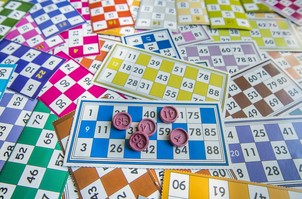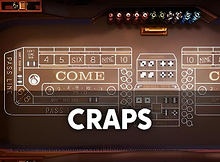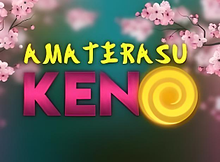1. What Are Keno Spots and Catches?
“Catching” the numbers at keno is what any gambler wants; actually to “catch” a number mean to correctly guess that number and already have it marked on your keno ticket.
A player’s winning is determined by the number of “catches” he made in the game; the maximum number is 20 “catches”, which never happened before.
A jackpot is touched when you achieved 15 “catches”.
The “spots” are the number marked on the tickets, a gambler is playing on.
The number of “catches” and “spots” are related; for example, when you have 10 spots and 6 catches, means you bought 10 numbers and 6 of them were a winner, being picked by the keno draw.
2. The Most Drawn Numbers in Keno
These are the 5 hot numbers (often drawn): 23, 34, 72, 1 and 4.
Most frequent state draws numbers to the numbers that have come out quite often in the last 50 draw are 3, 16, 44, 58 and 78.
As much drawn numbers a gambler has his tickets, as much he will collect.
The maximum of drawing numbers is 20, but actually, no one hit 10 out of 20 numbers ever (and is not possible).
Even to guess 15 numbers is really hard, as much as for guessing 14 numbers the odds are 1:390 million. The frequency of numbers extraction must be observed, noted and then played to ensure bigger changes to the gambler.
3. Hot Spots
According to statistics shows the last 50 draw number that came most often was 66, 20 times extracted.
The second, drawn 18 times, are numbers 61, 67 and 74, shows the statistics.
Most frequent state draws numbers to the numbers that have come out quite often in the last 50 draw are 3, 16, 44, 58 and 78. However, according to the source, were drawn 17 times.
According to statistics opposite the numbers of players considered “cold”, the “champion” is number 12. It was extracted only five times. Other two numbers are “cold”, 23 and 7, extracted seven times.
4. Cold and Late Numbers
Under this system, the “hot” numbers are considered those that have the highest frequency of occurrence (were extracted at least once every five contests), and the “cold’ numbers are those that have the lowest frequency of occurrence (were removed from the box at most once every 15 draws).
Also, there are other types of numbers, like “late”, which is a number having a big potential to be picked, but not yet picked and “ due” number, which mean it is a “must to pick” number in the next future.
5. Staring into the Abyss
The game of keno is based on a high dose of unpredictability, as it is the result of an RNG; random numbers are hard to be predicted, especially they’re the result of computer choice.
Anyway, there is a big difference between statistics and computer patterns, as the numbers are supposed not to be extracted in the same order or the same.
Even that some numbers are picked often than others that don’t mean it is a regular pattern.
6. The Truth behind Lucky Numbers
In a keno game, there is only one truth: the biggest prize is won with the highest number of picked numbers.
In this case, a total of 20 numbers (which have been established that is impossible).
From 6 to 10 picked numbers, any player has the opportunity to win at keno; up to 15 numbers can hit the jackpot. All keno gamblers (bingo and lottery too) have their own “lucky” numbers, on which they often play.
But, in keno, even it is a game of pure luck; some strategy could work better than playing on “lucky” numbers. There is, anyway, no restriction on playing with your favorite numbers, although it will better for your pocket to choose a safe strategy.
7. Chinese Lucky Numbers
Originated in the China the keno game becomes famous in the SUA in the 19th century; it spread into the world, lately. Chinese people have a great consideration of luck that is why they choose to associate some numbers with mystical connotation.
Keno game has some “special” numbers in the Chinese conception, so here are their meanings:
- Number 6 represents the wealth and is the number of businesses in China;
- Number 8 has a great magical connotation and power, being the number of prosperity and wealth;
- Number 9 it is the number of the Chinese Emperor, having also spiritual connotations (harmony and cultural meanings).


















